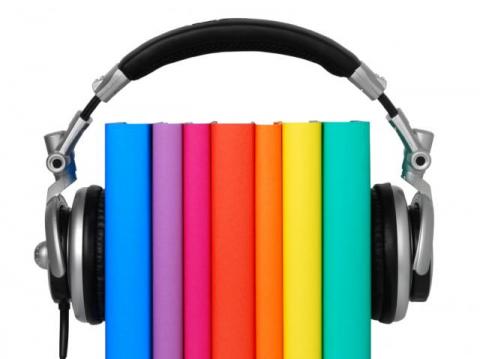Audio and text
Using audio with text is the easiest extension from just using text. In its most effective form this consists of a recording being made of someone reading the narrative or poem. The recording might be made by the author, which gives a satisfying degree of authenticity to the project, but, sadly, not all writers are good readers. Sometimes, therefore, the voice will be that of an actor. Either way, this is a chance to hear a native speaker reading aloud a text that the students have studied.
And make no mistake, this is an activity that should be done after the student has done some study of the work. It should not be used as an introduction – this would be squandering the opportunity to explore beneath the surface of the word
Poetry sources
There are a number of sources for teachers to download poetry being read aloud though not all the poetry is contemporary. Probably the biggest source is Poetry Archive, which features poets reading their own works, and as well as an ever expanding collection of contemporary poets at work, has an exciting collection of vintage recordings. There is a special section devoted to supporting teachers wishing to use the archive, though it should be noted that the teachers in mind are those teaching literature, not necessarily language, and who are working to the UK National Curriculum. Having said that, much of the material is flexible and can be used in a variety of settings. There are a number of other sources of poetry, including the Poetry Society and a number of poets have their own poems available as audio downloads including Roger McGough and Francesca Beard, both of whom have worked with British Council projects in schools.
Short story sources
Recordings of short stories are also available, but not as easy to find as poems. A number of classic English language shorts stories are available from www.learnoutloud.com but the search for contemporary short stories quickly brings us to Comma Press which is 'a not-for-profit publishing initiative dedicated to promoting new fiction and poetry, with an emphasis on the short story. It is committed to a spirit of risk-taking and challenging publishing, free of the commercial pressures on mainstream houses.'
Audio is used in the majority of the BritLit kits and, some cases, additional audio of interviews with writers is available. In one case, ‘Lucky’ by Jane Rogers, the majority of the kit is in audio form, and the story is listened to rather than read.
Audio and text
Using audio with text is the easiest extension from just using text. In its most effective form this consists of a recording being made of someone reading the narrative or poem. The recording might be made by the author, which gives a satisfying degree of authenticity to the project, but, sadly, not all writers are good readers. Sometimes, therefore, the voice will be that of an actor. Either way, this is a chance to hear a native speaker reading aloud a text that the students have studied.
And make no mistake, this is an activity that should be done after the student has done some study of the work. It should not be used as an introduction – this would be squandering the opportunity to explore beneath the surface of the word
Poetry sources
There are a number of sources for teachers to download poetry being read aloud though not all the poetry is contemporary. Probably the biggest source is Poetry Archive, which features poets reading their own works, and as well as an ever expanding collection of contemporary poets at work, has an exciting collection of vintage recordings. There is a special section devoted to supporting teachers wishing to use the archive, though it should be noted that the teachers in mind are those teaching literature, not necessarily language, and who are working to the UK National Curriculum. Having said that, much of the material is flexible and can be used in a variety of settings. There are a number of other sources of poetry, including the Poetry Society and a number of poets have their own poems available as audio downloads including Roger McGough and Francesca Beard, both of whom have worked with British Council projects in schools.
Short story sources
Recordings of short stories are also available, but not as easy to find as poems. A number of classic English language shorts stories are available from www.learnoutloud.com but the search for contemporary short stories quickly brings us to Comma Press which is 'a not-for-profit publishing initiative dedicated to promoting new fiction and poetry, with an emphasis on the short story. It is committed to a spirit of risk-taking and challenging publishing, free of the commercial pressures on mainstream houses.'
Audio is used in the majority of the BritLit kits and, some cases, additional audio of interviews with writers is available. In one case, ‘Lucky’ by Jane Rogers, the majority of the kit is in audio form, and the story is listened to rather than read.
